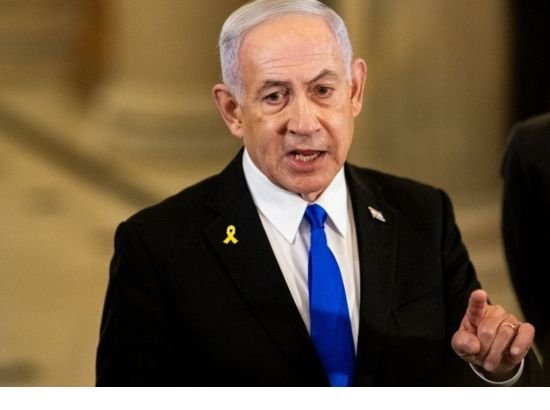
The long-discussed two-state solution for resolving the Israel-Palestine conflict now appears to be little more than a political slogan. While many countries continue to voice support for the Palestinians by invoking it, Israel seems determined to dismantle the very concept. Under Prime Minister Benjamin Netanyahu, the vision of a “Greater Israel” appears to be advancing rapidly, despite growing international criticism and fears of Israel’s isolation.
The possibility of creating an independent Palestinian state—consisting of the West Bank, East Jerusalem, and Gaza—has never seemed so remote. Israel’s ongoing military campaign in Gaza, coupled with expanding settlements in the West Bank, has pushed the idea further into obscurity.
After Israel carried out strikes on Hamas leaders in Qatar earlier this month, Doha convened an emergency Arab-Islamic summit. While the meeting condemned Israel strongly, no concrete plan emerged to halt its actions or address what the UN has described as “genocidal” attacks in Gaza.
Regional leaders know only the United States has real leverage over Israel. Yet Washington has shown no intention of applying pressure. President Donald Trump reassured that Israel would not strike Qatar again, while Secretary of State Marco Rubio visited Netanyahu to reaffirm the “unbreakable alliance.” During his visit, Rubio prayed with Netanyahu at the Western Wall, symbolizing Washington’s unwavering support.
Netanyahu, emboldened, declared that Israel had the right to target Hamas “anywhere in the world,” demanding Qatar expel Hamas officials or face consequences.
The phrase “Greater Israel” first emerged after the 1967 Six-Day War, when Israel captured the West Bank, East Jerusalem, Gaza, the Golan Heights, and Sinai. In 1977, the Likud Party formally enshrined the idea in its constitution, declaring that sovereignty must extend “from the sea to the Jordan River.”
Netanyahu has repeatedly emphasized Israel’s need for “full security control” west of the Jordan River, even if it negates Palestinian sovereignty. Currently, over 700,000 Israeli settlers live in the West Bank, and Netanyahu now seems poised to assert permanent authority there. Meanwhile, Israeli troops maintain positions in Lebanon and Syria, with no plans for withdrawal.
While Washington has not officially endorsed “Greater Israel,” influential figures like U.S. Ambassador Mike Huckabee have voiced strong support for the idea.
Despite nearly two years of ongoing military operations in Gaza, Netanyahu has brushed aside international outrage and human rights warnings. U.S. military, economic, and diplomatic backing continues to give Israel confidence.
Critics accuse Netanyahu of sidelining the safety of Israeli hostages still held by Hamas and ignoring widespread calls for a ceasefire. Meanwhile, as several Western nations prepare to push for Palestine’s recognition at the UN General Assembly, both Israel and the U.S. have dismissed such moves as “meaningless symbolism.”
Analysts warn that unless the world moves beyond words and imposes real costs—through sanctions, ending military aid, or cutting economic ties—Netanyahu’s vision of “Greater Israel” could soon become reality. The consequences would be grave not only for Palestinians and the wider region but also for Israel’s own international standing.
If Netanyahu eventually leaves office, he may leave behind a state more isolated than ever, with a global reputation in tatters that could take decades to rebuild.